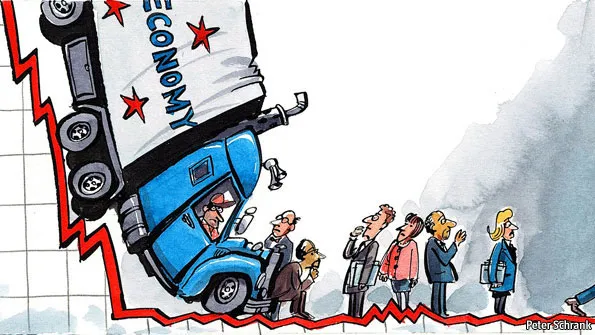This post is a response to the question [“Does central planning inevitably lead to an unstable economy?] (@lavender22/week-05-questions-central-planning) posed by @lavender22.
Does central planning inevitably lead to an unstable economy?
I do believe that central planning will inevitably lead to an unstable economy. We talked about it in last class discussion. If the government uses to much force to strong arm the economy into places it does not belong there is eventually a large repercussion. It happened in the early 2000s in the United States and hopefully we will not be forced in another one with a strong arm from the government. They had the best intentions, but did not think about the consequences if their system failed. I believe the same thing would happen if a government ran on a central planning system. The government has all the control over the country’s economic development when they use a central planning system. The United States only made choices about one market, and it crashed. If a country decided everything about all of theirs markets, I believe that it would inevitably fail.
How should countries handle their governments?
I believe we should be letting the economy go on its own. It regulates itself. It is almost a naturally working things these days. It rises and falls with the demand and supply. We could have a broad range of different economists studying the economy and if they see need trying to gently correct some smaller things to put us in the right direction. I do not believe that the government causing major changes would be good for our economy in the long run. Overall, central planning is not the best system for any government to implement if they want a chance at a prosperous and growing economy.
What does the United States do?
The United States seems to do a little of both. They do not control all the markets like central planning, but the often incentivize things like mortgage loans with small interest rates without the market being able to sustain that. Overall, central planning is not the way to go for the United States or any other country.
